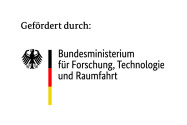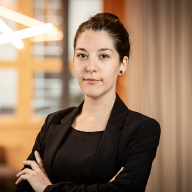

Peng Cheng Lab (鹏城实验室): Building advanced platforms and infrastructure for military-civil fusion in AI
China’s national laboratory system plays a critical role in its AI progress, yet players like Peng Cheng Laboratory (PCL) are hardly noticed in Europe until they become the target of US government restrictions. The US Commerce Department added PCL to its Entity List in January, viewing its work as likely to support military-civil fusion efforts. PCL conducts AI and cyber research that could facilitate future cyberattacks or feed into China’s system of mass surveillance, illustrating the potential pitfalls of collaborating with such Chinese labs.
A “new type of research and development institution” (新型研发机构) set up by the Guangdong and Shenzhen governments in 2018, PCL provides crucial support for advanced AI research and large language model (LLM) development by pooling talent, funding, and resources and building large-scale computing infrastructure. Its powerful “Cloud Brain” has helped Huawei and Baidu train LLMs and is now being leveraged to deploy Chinese models like DeepSeek’s R1 using indigenous chips.
Scientists at the lab collaborate internationally and participate in technical standardization processes. PCL-affiliated researchers coauthored 556 AI research papers with Europe-based colleagues between 2017 and 2022. PCL is also an important voice in China’s AI governance, for example regarding brain-computer interfaces.
Around 410 scientists work on disciplines that are designated as frontier and strategic, meaning they are likely to directly aid military-civil fusion programs. For example, research on interactive media and content generation could be used for information operations, while several divisions conduct frontier research at the nexus of AI and networks for future aerospace and unmanned applications.
PCL hosts one of China’s most sophisticated cyber ranges (a virtual IT simulation environment for cybersecurity training and development), which is believed to be used by the People’s Liberation Army to practice offensive operations. Behind the range’s creation is Fang Binxing (方滨兴), the founding father of China’s Great Firewall. Fang has called for China to leverage AI for enhancing the adaptability, secrecy, effectiveness and robustness of cyberattacks, which lends credibility to the hypothesis that PCL’s work in this domain may not be solely defensive.
Another dual-use research area revolves around smart cities, which are known for their role in mass surveillance and repression in China. PCL’s Director Gao Wen (高文) seeks to reinvent the “City Brain” (城市大脑), a concept developed by the US Air Force for combat decision-making and later applied to urban management. Gao’s aim is to advance this by designing smart cities that use fewer computing resources (hence are less carbon intensive), better structure data, and can complete undefined tasks, mimicking the functioning of the human brain and retina.

